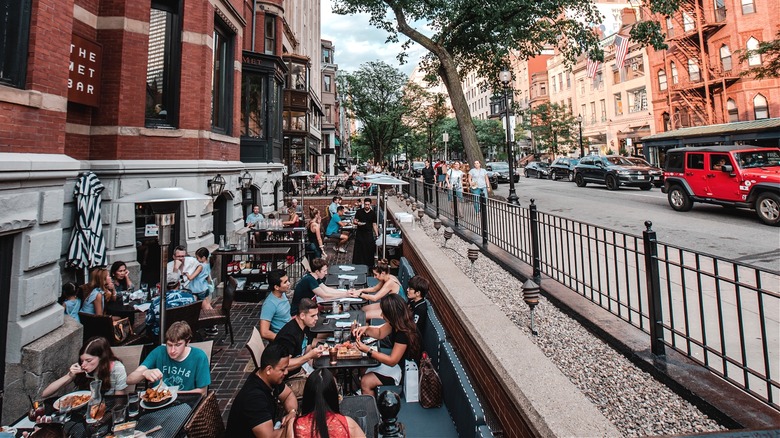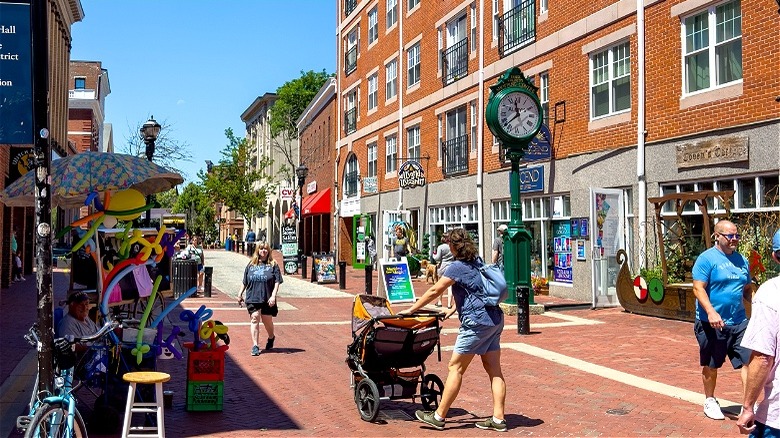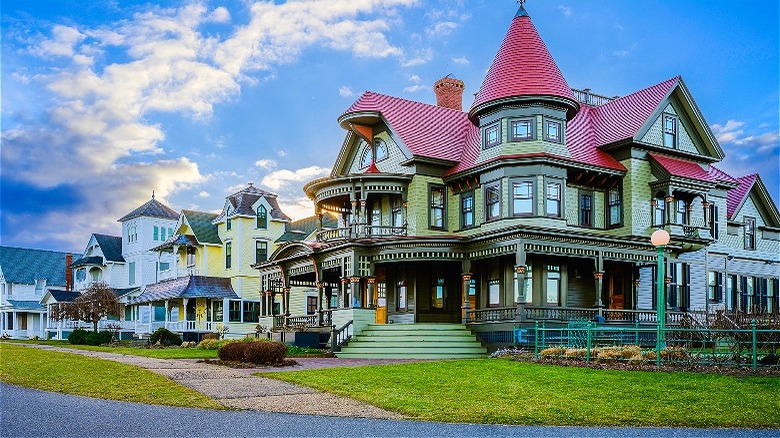This US State Has The Highest Cost Of Living For Single People
You're young, you're single, and you're ready to strike out on your own. There's just one problem, though: all of the living spaces are out of your price range. It's a tough housing market out there for those living in the United States, so tough that many young people have given up trying to find a home of their own. It's a nationwide dilemma, but prices vary considerably by state, as well as by relationship status.
The kneejerk answer to the question of which is the most expensive state to live in might well be California and New York, those two coastal juggernauts renowned for their cultural and political significance to American life but deplored for their high price tags. And they are indeed near the top of the list. But as of 2024, two states came out ahead of California and New York for highest cost of living: Hawaii and Massachusetts. Forbes Advisor estimated a $55,491 cost of living for Hawaii and $53,860 for Massachusetts, while GoBankingRates estimated a person would need an income of $131,560 to live in the former state and $106,897 for the latter (calculating the cost for housing, utilities, groceries, and transportation and assuming a 50/30/20 budget).
This said, which state is the most expensive for single people, specifically? According to MIT Living Wage data, it's the Bay State. Massachusetts has the highest minimum income required for single adults with no children: $58,009 against a national median of $44,737 (via SmartAsset).
Housing in Massachusetts drives up the cost of living
It's expensive for anyone to live in Massachusetts. Besides being the priciest state for single people without children, MIT Living Wage finds Massachusetts also demands the highest minimum income for single parents with one child ($109,111), two children ($140,222), and three children ($178,113). A family with two working parents and two kids, meanwhile, needs an annual income before taxes of $150,578 to live there, and that number goes up to $176,107 with three children. In virtually every household combination, Massachusetts was found at or near the top for cost-of-living expenses, with Hawaii its chief rival. (By the way, here's how much the average person spends in their lifetime.)
A big reason Massachusetts is so expensive to live is, as you might expect, housing. There's high demand, limited supply, and rising prices. The tight housing market in the state has seen some homes go for over 100% of their list price when they do sell. Even alternatives to traditional homes are hard to afford; condos in the Bay State have a median price north of $500,000. There have been calls to build more housing, but developers have said that they can't afford that either.
The year 2024 has seen other budget challenges for those living in Massachusetts, for both singles and families alike. Grocery prices there have gone up higher and faster than most of the U.S. That's in part due to lingering inflation, and in part due to the state not having a powerful enough retailer to drive down prices. But whatever the reason, it's another heavy expense for residents to shoulder.
Massachusetts does have a high income to help offset costs
Singles may find Massachusetts an expensive place to live, but there's some good news about the Bay State along with its high price tags. According to 2022 data from the Bureau of Labor Statistics (via Forbes Advisor), the average annual wage for Massachusetts was $80,329.60, the highest in the nation (here are the five states with the highest average annual salary). That figure is well above the minimum income needed for a single adult ($58,009) to maintain themselves in Massachusetts, though it's considerably lower than the minimum needed for a single parent.
In its cost-of-living analysis, Forbes Advisor also found the average amount of disposable income left over for those living in Massachusetts after expenses was $26,470, fifth overall. For comparison, the highest-ranking state, Washington, saw its citizens with an average of $30,894 after all the bills were settled. Hawaii, meanwhile, Massachusetts' rival for the most expensive state to live, ranked dead last for disposable income, at just $9,551.
The average disposable income for Massachusetts comes to about 32% of the average annual wage. Assuming a 50/30/20 budget, where half of monthly expenses are necessities, 30% are wants, and 20% goes toward savings, that leaves a single Massachusettsan with a fair amount of cash on-hand after basic needs are met, but not enough to cover wants and savings to the recommended degree.


